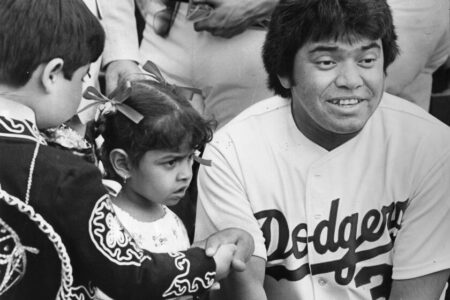The Passing of Pete Rose
Pete Rose, one of the most controversial figures in baseball history, passed away last September due to heart disease. A petition to reinstate him from his permanent ban from the sport was filed just a few months later, in January. This petition has garnered significant attention, with high-profile supporters such as President Donald Trump advocating for Rose’s induction into the Hall of Fame. It’s a narrative that feels almost too predictable, given Rose’s own expectations. Just 10 days before his death, he told sportscaster John Condit he believed his chances of making the Hall of Fame would significantly increase once he was gone. Rose’s cynical outlook was rooted in the idea that the concept of grace would sway public opinion after his death, making it easier for his proponents to push for his reinstatement. Despite his misgivings, he understood the mechanics of posthumous forgiveness: the world might be more willing to forget his past indiscretions once he was no longer around to face the consequences.
Rose’s Cynical Expectations
Rose’s candid comments to Condit highlight a bitter truth he had come to accept. "I’ve come to the conclusion — I hope I’m wrong — that I’ll make the Hall of Fame after I die," he said, expressing his dissatisfaction with the notion. For Rose, the Hall of Fame was about celebration—both for his fans and his family. He emphasized that the honor is meaningful only if you are alive to enjoy it: "What good is it going to do me or my fans if they put me in the Hall of Fame a couple of years after I pass away? What’s the point? Because they’ll make money over it?" This sentiment underscores Rose’s deep-seated frustration and his belief that his efforts to clear his name were futile. The mechanics of his prediction are straightforward: after decades of being ostracized from baseball, his supporters would likely become more vocal once they could frame his reinstatement as an act of posthumous justice. The decision now lies with MLB commissioner Rob Manfred, who will have to determine whether Rose’s legacy warrants a return to the sport.
The Ban and the Rules
The facts surrounding Rose’s ban are well-documented and remain unchanged. MLB Rule 21(d), established in the wake of the 1919 Black Sox scandal, stipulates that any player, umpire, or official who bets on baseball games in which they have a duty to perform will be declared permanently ineligible. Ample evidence has shown that Rose bet on baseball both as a player and a manager. In 1989, he agreed to a permanent ban, a decision that was meant to allow him to quickly apply for reinstatement without admitting fault. However, Rose’s path back into baseball was not without opportunity. He was reportedly offered a chance to be reinstated if he came clean about his gambling and dissociated himself from the activity. He declined this offer, continuing to lie about his bets for 15 years until he finally admitted to wagering on his own team while managing. Even then, he never fully admitted to betting on his team as a player, a claim that has persisted until his death.
The League’s Stance
For years, Rose had a clear path back into baseball. The league seemed to want only for him to stop lying and to distance himself from the activities that led to his ban. This was never a case of a league targeting him; rather, it was a man who appeared to believe he had better things to do than reverse a ban he had agreed to. Despite the legalization of sports gambling and MLB’s embrace of betting, the rules regarding the integrity of the game remain stringent. Rose’s continued association with casinos and his alleged involvement in a sexual relationship with a minor during his playing days provided no reason for MLB to reconsider his status. If the Hall of Fame was as important to his family as Rose claimed, it suggests that his love for gambling outweighed his desire for redemption. Manfred’s decision will set a precedent, one that could fundamentally alter how the league deals with similar cases in the future.
The Integrity of the Game
The question of Rose’s reinstatement is not about whether he changed; it’s about whether the league has. Rose’s gambling compromised the integrity of baseball, a sport where every decision can influence the outcome of the game. As a manager, Rose had the power to manipulate every in-game decision, potentially altering the course of games in ways that benefited his bets. He could have pulled starting pitchers early, managed injury timetables, or made any number of strategic moves that could have had long-lasting effects. Moreover, his illegal activities gave those he bet with leverage over him, further compromising the game’s integrity. The fact that Rose continued to lie and associate with gambling even after his ban suggests a lack of genuine remorse. Manfred, in deciding on Rose’s petition, must consider whether granting posthumous reinstatement would send a message that the league values public sentiment over the principles it has long held dear.
Setting a Precedent
The implications of reinstating Rose are far-reaching. If Manfred were to grant this petition, it would signal that the league is willing to overlook significant infractions and a lack of contrition, provided the person is no longer alive. This precedent could affect future cases, such as those of Barry Bonds and Shoeless Joe Jackson. While Rose’s actions are not as egregious as throwing a World Series, as Jackson and the 1919 White Sox did, the fundamental issue is the same: betting on baseball, even if it is on your own team, is a serious breach of trust. Rose’s continued defiance and his failure to take the steps offered to him for reinstatement make his case particularly challenging. Manfred’s decision will be a test of the league’s commitment to its rules and the integrity of the game. If he chooses to reinstate Rose, it may signal a willingness to compromise on principles, which could have broader, unintended consequences for baseball.











